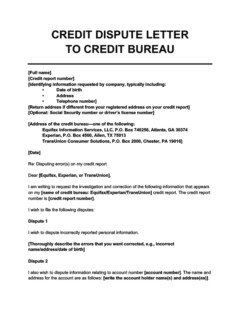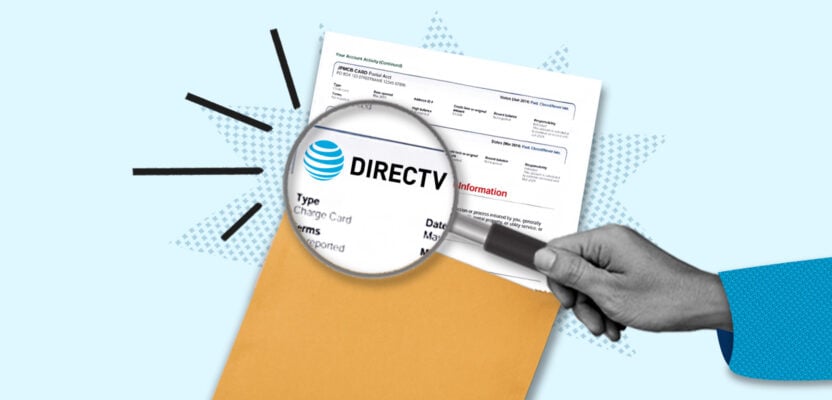When debt collectors like DirecTV Collections come calling, it can be confusing—and more than a little intimidating. As their representatives have probably made clear, DirecTV Collections is a debt collection agency, and they’re going after you because they think you owe them (or someone they work for) money.
The most important thing to do is to stay calm. It’s easy to get into trouble with debt collectors if you’re not careful, but there are laws protecting you from companies like DirecTV Collections. Don’t say another word to them (and definitely don’t admit that you owe them anything) until you review your rights and verify that the debts they’re saying you owe are real.
Table of Contents
What is DirecTV Collections?
DirecTV Collections is the debt collections department of satellite television company DirecTV, which was founded in El Segundo, California in 1990. They collect payments on overdue satellite and streaming service bills from customers. 1
The telecommunications company AT&T purchased DirecTV in 2015, but they returned the company to independent operation in 2021. 2 3
Who does DirecTV Collections collect for?
DirecTV Collections is a first-party debt collector, which means they collect on behalf of their parent company rather than on behalf of other businesses.
If you have unpaid bills related to a DirecTV account, you may be hearing from DirecTV Collections.
Is DirecTV Collections a scam?
No, DirecTV Collections isn’t a scam. They’re the legitimate debt collection division of DirectTV. However, like any other debt collector, they may still behave unethically. There’s some evidence they violated consumer rights in the past.
In a pending class-action lawsuit filed in 2021, DirecTV Collections and third-party collectors acting on behalf of DirecTV allegedly violated the Telephone Consumer Protection Act (TCPA) by placing prerecorded debt collection calls to non-customers’ cell phones. 4
What’s more, scammers may try to trick you into paying them by claiming to represent DirecTV Collections. It’s best to verify your debt before making any payments, which you can do by contacting DirecTV directly using the contact information below.
DirecTV Collections Contact Information
If you want to remove DirecTV Collections from your credit report, write to their address:

Address: 2230 E Imperial Hwy
El Segundo, CA 90245-3504
Phone Number: (800) 531-5000
Website: www.directv.com
Disputing an incorrect entry on your credit report can be stressful and difficult. Consider working with a professional.
Understand your rights
Because DirecTV Collections is a first-party debt collector (meaning they collect debts on their own behalf), they don’t have to abide by the same laws that apply to third-party debt collection agencies (which collect debts for other companies and individuals).
Specifically, DirecTV Collections isn’t required to adhere to the Fair Debt Collection Practices Act, which means that (depending on the laws in your state) there may be fewer restrictions on how and when they can contact you.
However, you still have several options for fighting DirecTV Collections and getting the collection account off your credit report, which we’ll describe below.
Keep records of letters and phone calls
If you think that DirecTV Collections may be violating your rights, then it’s a good idea to record your phone calls, save any letters they send you, and keep records of when they’ve contacted you. This will make things much easier if you need to take legal action against them in the future.
Beware of the statute of limitations on debt
Depending on how long it’s been since you failed to repay DirecTV Collections, it’s possible that your debt is old enough that it’s passed the statute of limitations. This is a legal limit on how long DirecTV Collections can sue you over the debt. After this period passes, it’s known as time-barred debt.
The statute of limitations on most debts is between 3 and 6 years, but the exact amount of time depends on several factors, including the state you live in and the type of debt that it is.
To find the statute of limitations on your debt, check your state attorney general’s website and email their office if the information you’re looking for isn’t available online.
How to remove DirecTV Collections from your credit report
If your credit score is suffering as a result of DirecTV Collections debt, there are two ways to recover:
1. Dispute the debt
If you think the debt that DirecTV Collections is trying to collect isn’t yours, dispute the item on your credit report. You can also dispute it if it’s older than 7 years (measured from the date of your first missed payment)—by law, collection accounts are supposed to fall off your credit report by then.
To dispute a debt for free, send a credit dispute letter to the credit bureaus that are showing DirecTV Collections on your credit report. You should also send a dispute letter to DirecTV Collections.
If DirecTV Collections is on your credit report by mistake, the credit bureaus have to remove it from your report. Use this credit dispute letter template to file a dispute about DirecTV Collections directly with any of the credit bureaus.
Credit Dispute Letter
To find out which credit bureaus you need to send the letter to, request your free credit reports from Experian, Equifax, and TransUnion at AnnualCreditReport.com. If they don’t respond to your dispute within 30–45 days, then they’re legally obligated to remove the item from your credit report.
2. Negotiate with DirecTV Collections
Unfortunately, if the debt is legitimate and it’s less than 7 years old, removing DirecTV Collections from your credit report will be very difficult (although not impossible).
Your best move at this point is to simply pay the debt. Newer credit scoring models, such as FICO 9 and VantageScore 3.0, ignore paid-off collection accounts, which means paying off your collection will boost your credit score even if you can’t remove the item from your credit report.
However, when you pay, there are two negotiation strategies you can try as a last-ditch attempt to remove DirecTV Collections from your report:
- Pay for delete: You might be able to convince DirecTV Collections to remove the negative mark in exchange for paying off the debt. You can open these negotiations by sending them a pay-for-delete letter.
- Goodwill deletion: This is an alternate strategy you can try after paying your debt. Once the account is paid off, you can send DirecTV Collections a goodwill letter template asking them to empathize with your situation and remove the mark from your credit report as an act of kindness.
If you can’t afford to pay off your debt, try negotiating a debt settlement
If your debt is fairly old, then there’s a chance that DirecTV Collections will accept less than the full amount you owe (a practice known as debt settlement) to minimize their losses. You can negotiate a debt settlement with DirecTV Collections over the phone or by sending a debt settlement letter.
How to file a complaint against DirecTV Collections
If you’re unhappy with how DirecTV Collections is treating you, then you can file a complaint on the Better Business Bureau (BBB) website.
However, bear in mind that the BBB is a private organization that has no affiliation with the US government. The BBB will forward your complaint to DirecTV Collections, but there’s no guarantee that DirecTV Collections will address it in a satisfactory manner.
Alternatively, if DirecTV Collections has done something illegal, then you can report them to the Federal Trade Commission, the Consumer Financial Protection Bureau, or your state attorney general.
Can I sue DirecTV Collections for harassment?
No, you can’t sue DirecTV Collections for harassment. You may have heard that you can sue debt collectors for harassing you, but this doesn’t apply to DirecTV Collections since they’re a first-party debt collector and they’re not required to abide by the Fair Debt Collection Practices Act.
However, you may be able to sue DirecTV Collections if they violate the Telephone Consumer Protection Act when calling you. You may also be able to press charges if a representative threatens you.
How to stop DirecTV Collections from calling you
DirecTV Collections will contact you by whatever means they see fit if they believe you have an unsettled debt, and they won’t stop unless you pay the debt or reach an agreement with them.
Ordinarily, debt collection agencies have to stop calling you if you send them a debt verification letter. However, DirecTV Collections isn’t obligated to do so because they’re a first-party debt collector—they collect their own debts, not debts owed to other companies. This means that many of the normal laws on debt collection, such as the Fair Debt Collection Practices Act (FDCPA), don’t apply to them.
Nevertheless, you can try these approaches to get them to stop calling you:
- Send them a letter: Although this isn’t guaranteed to work, you can try sending DirecTV Collections a letter asking them to stop calling you and only communicate with you in writing. They may be more likely to agree to your request if you previously had a good relationship with them.
- Block their calls: You can set up a call-blocking service by contacting your phone service provider or downloading a blocking app onto your mobile phone. However, bear in mind that this comes with risks—for example, they may be more inclined to sue you over the debt.
Note that, depending on where you live, it’s possible that stricter laws actually do apply to DirecTV Collections. Several states have their own laws (often modeled off of the FDCPA) that place more stringent restrictions on first-party debt collectors. Look up your local legislation and consider consulting with an attorney to learn more.
Takeaway: If DirecTV Collections is contacting you, they probably think you owe them a debt
- DirecTV Collections is a legitimate debt collector, and they collect delinquent debts that consumers owe them.
- DirecTV Collections isn’t a scam, but you should make sure to avoid scammers by verifying your debts and only making payments once you're sure they're legitimate.
- Because DirecTV Collections is a first-party debt collector, they don’t need to abide by the Fair Debt Collection Practices Act, and there are fewer restrictions on how they contact you (unless your state has its own laws governing first-party debt collectors).
- There are several ways of removing DirecTV Collections debt from your credit report. If these approaches fail, then consider seeking advice from a credit repair professional.







